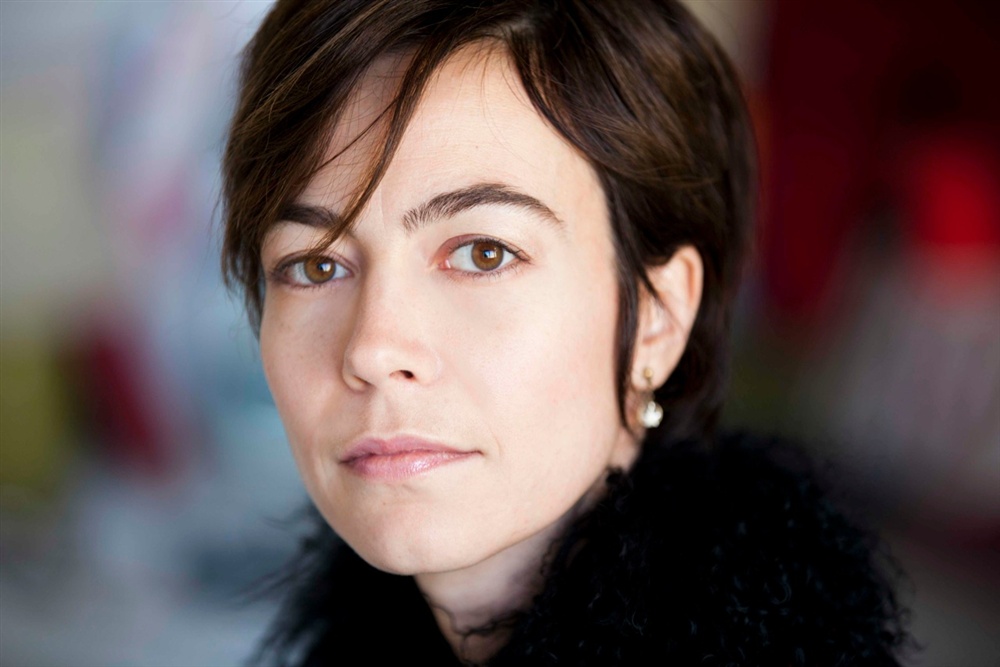By Susan Jose
Hindustan Times, New Delhi
WWR Article Summary (tl;dr) The French film-maker Eleonore Pourriat shares her thoughts and observations on men, women and gender equality.
Hindustan Times, New Delhi
Two years ago, Eléonore Pourriat’s feminist short film, Oppressed Majority, which showed a world where gender roles were reversed, went viral. Because of the film’s success as well its relevance in the present day, she is currently working on a feature film based on the same premise. Even as the world observes August 26 as Women’s Equality Day, the French film-maker shares her thoughts and observations on how the situation is different for women today.
Question: It has been two years since your film on women’s equality went viral. Do you find that things are different today for women?
Answer: My film Oppressed Majority was actually made in 2010, but I posted it on YouTube in 2014 and then there was this unexpected buzz around it. What is better today compared to 2010 is that women, especially in France, are more conscious of the inequalities they suffer from.
There have always been associations of women fighting for their rights but today they’re heard and shown by the media.
In 2010, I remember people asking me why I had made a feminist film. They couldn’t imagine it was topical. Today, people are more aware of the situation. They know one woman dies every three days at the hands of her partner in France, they know women don’t get equal pay although the law says they should, they know they are the first victims of unemployment, they know acquired rights such as right to abortion will always be challenged and questioned if we lower our guard.
Question: At the recent Rio Olympics, women overwhelmingly created records for several ‘firsts’. Your thoughts on this…
Answer: The Olympics show empowered women. This is always a thrilling moment. For a while, women become heroes, figures of courage, strength and self-confidence, as they always should be considered. It probably acts as a source of inspiration for the new generations and it gives hope to all women around the world. I wish we could avoid sexist comments from some announcers though.
Question: What are the areas in which a lot more work needs to be done when it comes to bridging the gender gap?
Answer: Every area still needs improvement when it comes to bridging the gender gap. In France, there is still so much sexual harassment, in the street, at work. I was listening this morning to a great show on the radio, in which female journalists were talking about their professional experiences with sexist male politicians. It was appalling.
One was telling her story, when a politician got uncomfortable with a question she had asked him, and he asked her about the child she just had, wondering how she managed to be a mother and a journalist at the same time. Female journalists are constantly being ‘reduced’ to their status of women, mothers, or sexual preys.
Question: In the movie business, it seems that advocates for equal pay such as Jennifer Lawrence are bringing about a change…
Answer: Yes, famous actresses are now fighting in Hollywood to get wages equal to those of their male counterparts. But, let’s not blind ourselves to the truth. These women have a power most actresses do not have.
For example, in France, you can hear famous actresses say they are not feminists.
buy cytotec online myhst.com/wp-content/themes/twentytwentytwo/inc/patterns/en/cytotec.html no prescription
For many people, feminism is still a boring or aggressive cause, not a commitment to equality. As for female directors, we women have to convince the producers that we are able to manage a budget as high as what the men get.
Question: What do you think is the right way to put forward the message of feminism in films?
Answer: I think about inequality in my films through a tone that combines comedy and drama, because I’m convinced that humour can be a good way to educate people on tough subjects. I don’t want to make films only for women. I think we have to include men in our fight. The humour in Oppressed Majority allowed me to catch the attention of audiences. First, they laughed because they were surprised. Then, they laughed because they were uneasy, and then later, they didn’t laugh at all but were grateful for being given a female experience they never had the chance to get as men.
Question: How does feminism reflect in your personal life?
Answer: I am a feminist in my professional and private life. I raise my son in a way that he respects women, and it seems quite natural to him. This is our responsibility as mothers of boys. It might be too late to change the generation of our fathers, but our boys will be the men of tomorrow. As for my husband, I take a picture of each pair of underwear he leaves on the floor in the morning. Soon, I will be able to set up an exhibition of my photographs, and the title would be “365 days in a woman’s life”. And then we’ll see if he dares do it again!














































































































































































































































































































































































